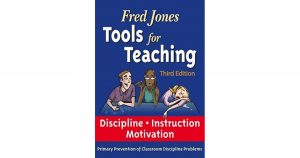My 7-year-old son came home the other day and just before bed (his favourite time to initiate a deep and meaningful discussion) he said, “Mum, there is a rule at school and I would like your opinion on it. You may agree with it, you may not but I would like to know what you think?”
He went on to explain that the children in his class receive a punishment where they lose five minutes off their lunch break, if they don’t cross their arms or if they are talking when they line up. He explained that he and his best friend had this punishment issued to them that day and it had upset him. I was gobsmacked. I wasn’t aware I had placed him in a Dickensian school or military training academy. I thought it was a regular school for primary aged children where punitive consequences were widely understood to be unhelpful at best, harmful at worst.
 I pressed for more information, what was his understanding of the rule, why was it felt important to cross his arms or be quiet in line…. He shrugged and said, “I don’t know?”
I pressed for more information, what was his understanding of the rule, why was it felt important to cross his arms or be quiet in line…. He shrugged and said, “I don’t know?”
On the way to school the following morning, I caught up with another parent and asked if they knew of this rule? They said they didn’t but did say their child had come home the day before very upset. She added “I know everyone thinks their child is well behaved, but she really loves school and is very good. Yesterday she lost 5 minutes of her lunch for fiddling with a bit of paper”.
I asked my child’s friend his understanding of the rule. He explained it the same way as my son but added, “You mustn’t fiddle with things on your desk”. My face must have given my feelings away. He rushed to reassure me, “Don’t worry, we only have the scary teacher two days a week, we have a nice one from Wednesday”.
I met with the teacher to discuss my concerns, the place for consequences and the difference between a natural consequence and punishment, the message sent to children about their behaviour and how, when such a harsh punishment was issued for being distracted – versus much more intentional destructive behaviour – what sense this gave of right from wrong. I outlined the welfare implications given that the children already had a shortened break (due to Covid-19 and social bubbles) and that cutting off more of the precious time they had to eat, rest their brains and socialise wasn’t conducive to learning, nor was being scared in class.
I was met with a very earnest young woman, clearly passionate about children achieving. She was able to explain the implications of children being distracted and missing instructions. I felt for her with a class of 30 children between 7 and 8 years old and no teaching assistant to support her. I showed some empathy towards this and her positive intentions to ensure children could focus and complete tasks, yet I could not agree with the enforcement of the rules. She spoke passionately of children needing consequences to learn, and how without them they would not be prepared for secondary school – she asked, “Without consequences, how will we get them to follow the rules?”. She offered to just not issue my son with this punishment and assured me they were only a few in the class who regularly had their lunch reduced, and he was not one of them. I didn’t know what to say, as I was imagining who these poor children were. I eventually I settled on, ‘no that wasn’t a solution’ and gently explained that whilst my son was my priority, I cared about all the children, alongside the implications of him being treated differently.
It was agreed she would speak to the deputy head of the school. I didn’t hear back. I emailed the school around the concerns, nothing.
We had term break and late Sunday night. My son asked me for some lined paper and a pen. The following morning, he asked me to read his letter and provide an envelope:
 “I don’t mean to be rude (spelt road), and I know I have had this confusion before but just hear me out. They are afraid of you, well not exactly you the…..the punishment, yes that’s it. That’s why the thing you have is working, the punishment is making them do what you want. I think there is a better way to do it.
“I don’t mean to be rude (spelt road), and I know I have had this confusion before but just hear me out. They are afraid of you, well not exactly you the…..the punishment, yes that’s it. That’s why the thing you have is working, the punishment is making them do what you want. I think there is a better way to do it.
For this term I want you to do this for me and the children. Every time they do something naughty, you have a little talk to them about what they have done. I don’t know the next bit, but it will work.
Much hope”
I received a call from the assistant head the next day. They were concerned about his letter and wanted to understand my feelings as I had previously expressed them, and my son’s. We talked more, we explored how at odds this approach was with the ethos of their behaviour management procedure, which speaks about dialogue, community, reconciliation and restorative responses, but that these ideas were not included in their list of consequences.
That day my son received the 5-minute punishment for talking in line. The next day the assistant head and I had another conversation! It was explained to me that everything could not just stop as a child had written a letter raising objections. I agreed but said I found the timing interesting.
At dinner my son told me that he was not concerned any more as he and the teachers had had a talk and they have taken the time to explain things to him. I was pleased that his curiosity and sense of injustice had been satisfied. I asked what they explained, and he reeled off the list of why it was important to not fiddle with things on your desk, cross your arms and be quiet in line. I expressed how pleased I was he understood what the teachers are trying to do and how important it is to them that all the children in the school can learn. “Yes”, he said, “They have to do it as without consequences children cannot learn their lessons.”
My internal struggle was great. I did not want him to grow up believing this doctrine; at the same time, I wanted him to respect the teacher, understand her and co-operate. He seemed more at peace with the issue.
My curiosity got the better of me. I asked him what the other teacher does (the one he calls the nice one), the teacher who doesn’t use the 5 minutes off lunch punishment when the children are noisy lining up.
He was quiet for a few moments and looked confused, eventually he responded, “You know, the children are always quiet when they line up for her.”
I was genuinely taken back and asked, “How come?”
After more thoughtful pushing his food around his plate, he said, “You know, I don’t know… perhaps it is because she is kinder to the children.”
By Kerry Shoesmith
Recommended reading: Fred Jones Tools for Teaching: Discipline, Instruction, Motivation
